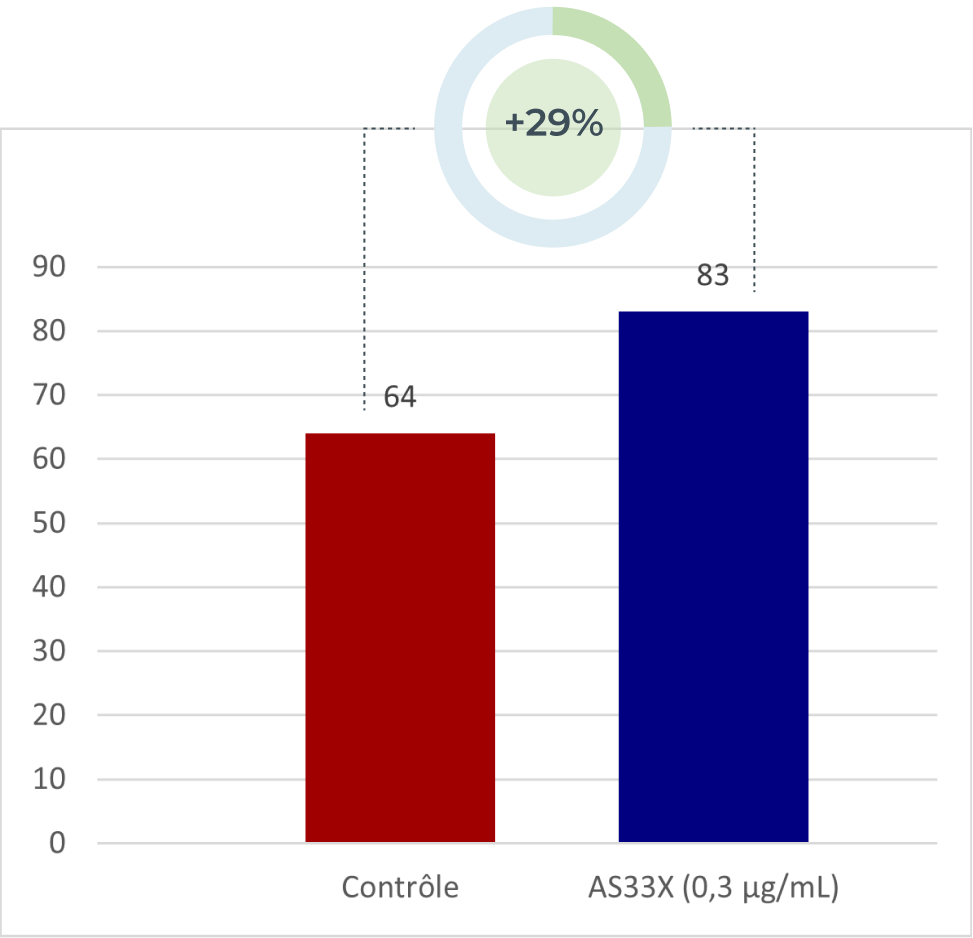
efficiency
Proven efficacy in in-vitro and in-vivo studies

As a preventive oral treatment for 14 days, CogniSpice demonstrated symptomatic efficacy compared with a reference drug, Donepezil (DPZ). This efficacy applies to loss of spatial orientation and episodic memory.
Effect of eugenol on neurogenesis
Over a three-week period, a growth in connections and interconnections between neurons can be observed.
Clove is claimed to be an antioxidant. ID 2132
This is complemented by a specific claim on cognition.

30% more neuron survival and connectivity!
Using exposure times of 24H, it is possible to look in-vitro at the concentrations of CogniSpice (AS33X) to protect the network of neurons and neurites from oxidative stress. The aim of the study was to evaluate intoxicated cortical neurons in rats at 7 concentrations of the extract. Neuron survival and neurite network protection were achieved at low extract concentrations (0.3 and 0.1 μg/mL respectively).
Neuronal survival
(% of control)
Neurite network
(% of control)

Neuron survival
(neuroprotection)

(neurogenesis)
Effect of extract on cortical neuron survival and neurite network in the presence of Aβ1-42 peptide after 24 h of application.
Protection for memory and against oxidative stress
The in-vivo study investigated the minimum effective concentration of CogniSpice (AS33X). The reference molecule is Donepezil (DPZ1, Pfizer’s ARICEPT), commonly used in the treatment of Alzheimer’s disease; efficacy was assessed over 21 days, with oral intake in preventive mode 14 days before intoxication; efficacy on spatial and long-term memory was achieved for 2 effective daily doses in mice equivalent to 336 and 625mg respectively in humans.
With CogniSpice, the treatment allows the brain to return to normal functioning.
Short term
(working memory)
Long term
(learning memory)
Long term
(lipid peroxidation)

Y-maze alternation

Passive avoidance (STPA)

Lipid peroxidation

Oxidative stress is linked to an endogenous or exogenous production of oxygenated free radicals that exceeds our antioxidant capacities.
In many serious diseases (Alzheimer’s, cancer, inflammatory diseases such as endometriosis, …) and particularly those linked to aging, oxidative stress is the original triggering factor.
Since 2012, Aroma Science has been working in collaboration with the St Jérôme Oxidative Stress Laboratory in Marseille on the new antioxidant formula CogniSpice.
Working memory is a model of short-term memory function, and short-term memory is seen as a means of temporarily maintaining information. Working memory enables the temporary retention of information.
Episodic memory: episodic memory is part of long-term memory. It is responsible for encoding, storing and retrieving personally experienced information (memories!).

